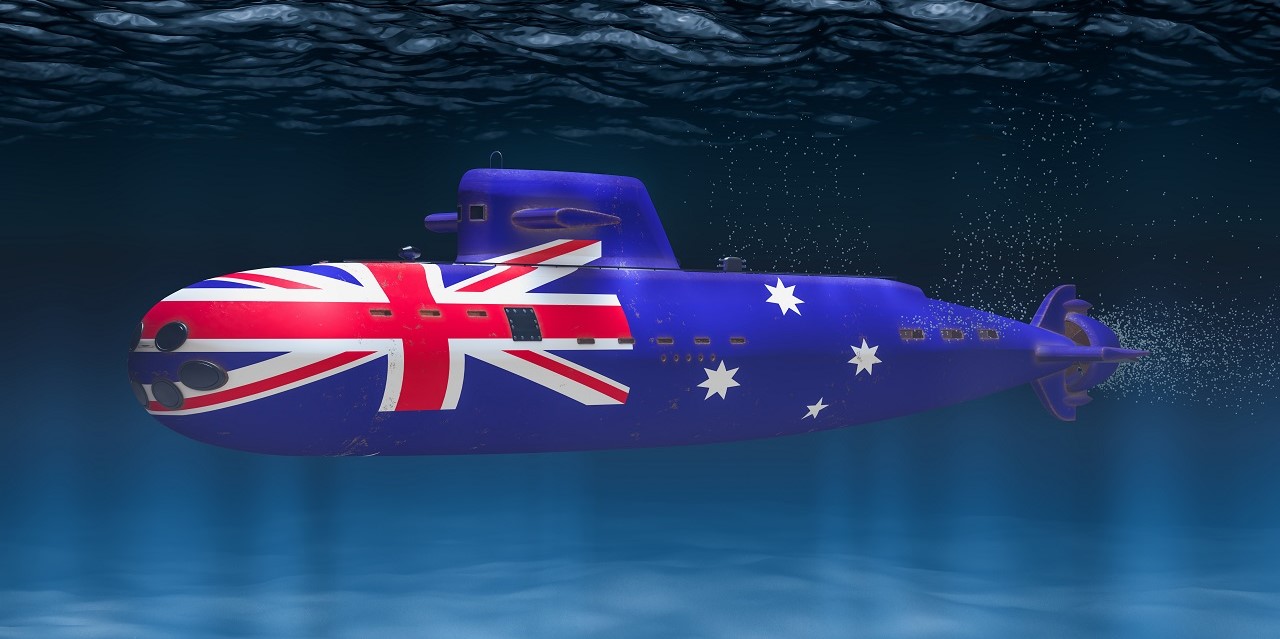In response to growing concerns over China’s influence in the Indo-Pacific, US President Joe Biden and the leaders of Australia and the United Kingdom announced on March 13 that Canberra would purchase nuclear-powered Virginia-class attack submarines from the United States to upgrade its fleet.
Later, on March 17, the US State Department approved the sale of 220 Tomahawk cruise missiles in a deal worth more than $1 billion. Both these sales are part of an intense military modernization undertaken by Canberra to counter China’s expanding military presence and influence in the Pacific.
However, despite the burgeoning military relationship between the two AUKUS allies, the support from Australia may not be unconditional and may not extend to the US military’s assistance to Taiwan in case of its potential invasion by the People’s Republic of China.
In a recent announcement, Australian defense minister Richard Marles said his country had not guaranteed the United States that Australia would stand behind its ally in any future conflict involving Taiwan in exchange for American nuclear-powered submarines.
“Absolutely not, and I couldn’t be more unequivocal than that,” Marles told Australian Broadcasting Corp’s “Insiders” news program on March 19.
“I want to make it clear that the moment that there is a flag on the first of those Virginia-class submarines in the early 2030s is the moment that that submarine will be under the complete control of the Australian government of the day and again, no one would have expected that to be any different. I mean, that is obviously the basis upon which this is happening,” he added.
Some who oppose the agreement in Australia claim that the US would not transfer up to five of its Virginia-class submarines without guarantees that they would be made available in a fight with China over Taiwan.

Richard Marles made these comments while defending Australia’s multi-decade plan to purchase nuclear-powered submarines with assistance from the US and the UK, at a potential cost of up to $368 billion between now and the middle of the 2050s.
He stated that Australia’s interest in defending trade, freedom of navigation, and freedom of flight in the South China Sea would be supported by the AUKUS submarines.
It is pertinent to note that to maintain “strategic ambiguity,” Australia, like the United States, refuses to state how it would respond if China attacked Taiwan.
Since 1951, Australia and the US have also cooperated on a bilateral defense agreement that requires them to consult when one is attacked but does not obligate them to come to the other’s aid.
When asked about the potential Chinese invasion of Taiwan, Marles asserted that Taiwan was an entirely different topic and would not be the subject of any future battle, even though China has not ruled out annexing it by force.
Marles said, “What Australians do in respect of any conflict is always a matter for an Australian government of the day to control, and this doesn’t remove any ounce of that control.”
Although Australia continues to push back against Chinese military expansion, a diplomatic thaw has recently been achieved between the two sides.
China-Australia Ties Going Through A Shift
Australian Prime Minister Anthony Albanese met Chinese President Xi Jinping in Indonesia on the sidelines of the G-20 summit. This meeting made global headlines as it was the first between the head of these two states in almost six years.
Albanese called the discussions “very positive and constructive” in remarks to the media after the meeting. He said the countries still have “big differences to manage” but emphasized, “we’re always going to be better off when we have dialogue and can talk constructively and respectfully, but also honestly, about what those differences are.”
In recent years, relations between the two nations have reached an all-time low, especially under the conservative administration of Albanese’s predecessor Morrison. Before Morrison was elected Prime Minister in 2018, Australia became the first nation to forbid the Chinese telecom company Huawei from its 5G network.
The bilateral relations reached the depths when Morrison called for a probe into COVID-19’s origins in 2020. Responding to this, China imposed official and unofficial trade restrictions on goods, including wine and seafood, which cost Australian exporters billions of dollars. Beijing also prohibited minister-to-minister meetings.
In February last year, the PLA Navy warship was accused of shining a military-grade laser on an Australian Air Force (RAAF) P-8A Poseidon aircraft.
The relationship between the two countries, already fraught with tensions, saw a mammoth downfall when China signed a security cooperation agreement with the Solomon Islands. This agreement triggered concerns that China would soon station its naval assets close to Canberra.
Another military episode was triggered when the RAAF accused the Chinese PLA Air Force of conducting dangerous interceptions of Australian surveillance aircraft.
The meeting between Anthony Albanese and Chinese President Xi Jinping somewhat revived hopes of a diplomatic revival between the two countries. However, Canberra has nonetheless made the submarine purchase to counter Chinese influence.
- Contact the author at sakshi.tiwari9555@gmail.com
- Follow EurAsian Times on Google News